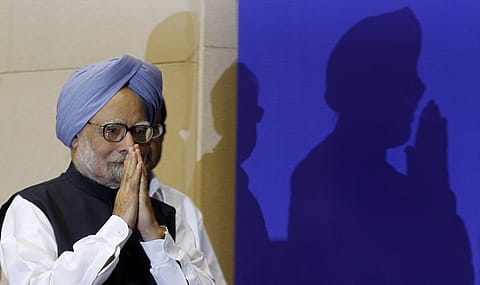Manmohan Singh – The principal architect of India’s ‘economic freedom’
By unleashing India’s free market “animal spirits’’ that gave birth to a new economy, he indelibly shaped India’s trajectory forever.

India mourns the loss of Dr Manmohan Singh, its foremost economic reformer and one of the principal architects of India’s ‘economic freedom’ along with the then PM Narasimha Rao, who ushered in the rise of a new India through creative destruction. By unleashing India’s free market “animal spirits’’ that gave birth to a new economy, he indelibly shaped India’s trajectory forever. His policies ushered in a new era of growth, entrepreneurship, and modernisation, paving the way for India’s emergence as one of the fastest-growing major economies of the world.
The more important thing that is often underappreciated is that he managed such a major pivot in an economy with nearly a billion people and then with fossilised and out-of-sync economic thinking and systems ever so smoothly without a crash landing. One has to only look at the world littered with botched reform experiments that failed to confront underlying problems and eventually brought catastrophic results.
As a person, he was grace and dignity personified and was also humble to a fault. As a leader, he was a shining example of unmatched intellect and integrity who dedicated his life to India’s progress.
As an economist and professional his actions spoke louder than his words. Dr Singh’s journey is a case study and a testament to his capabilities. He left a profound impact on India’s economic landscape with no area of administration and policymaking untouched by his professional competence. He served as an Economic Advisor to the Ministry of Foreign Trade, as Chief Economic Advisor in the Ministry of Finance, Governor of the RBI, Deputy Chairman of the Planning Commission and Chairman of the UGC. And subsequently as Finance Minister and then as Prime Minister and helped shape India’s remarkable economic transformation.
But it is his role as Finance Minister that is the most storied. In the historic 1991 Budget speech, he captured everyone’s imagination with the Victor Hugo quote: “No power on earth can stop an idea whose time has come.” His budget unleashed the India story of today. He dismantled the Licence Raj, allowing industries to operate with greater autonomy. Import licensing was abolished for most goods liberalising trade. Tariffs were sharply reduced, enabling deeper integration into the global economy.
The Financial Sector that is the toast of the economy benefitted immensely too through his reforms. Banking sector policies were overhauled to boost efficiency and competition, while capital markets were modernised and SEBI was established.
Foreign Investments got a leg up with restrictions on FDI being relaxed, paving the way for multinational corporations to invest in India. Importantly, Foreign exchange controls were eased, laying the groundwork for a convertible rupee.
Recommended Stories
Tax Reforms were initiated that simplified the tax structure and rationalisation of rates making the system more efficient and equitable.
As Prime Minister, his bold stand on the contentious India-US Civil Nuclear Agreement signed in 2008, ended India’s treatment as a nuclear pariah by the US and integrated it into the global nuclear order.
Most importantly, however, the ultimate test of reforms is if it essentially changes the fabric of an economy, the institutional and regulatory framework in which businesses and people operate. It is here that he has left an indelible mark. My generation of Indians will vouch for the fact that the 1991 reforms enabled a new social and economic contract between the state and the citizens. It gave economic freedom and a more meritocratic sphere that allowed the average Indian, the middle class, the consumer, the entrepreneur and collectively the Indian economy a chance to blossom and aspire and for the ‘India story’ to become ‘cool’!
The author is the group chief economist at L&T.
(INR CR)
(DISCLAIMER: The views and opinions expressed by the author on fortuneindia.com are either their own or of their organisation's, but not of fortuneindia.com and its editorial team.)